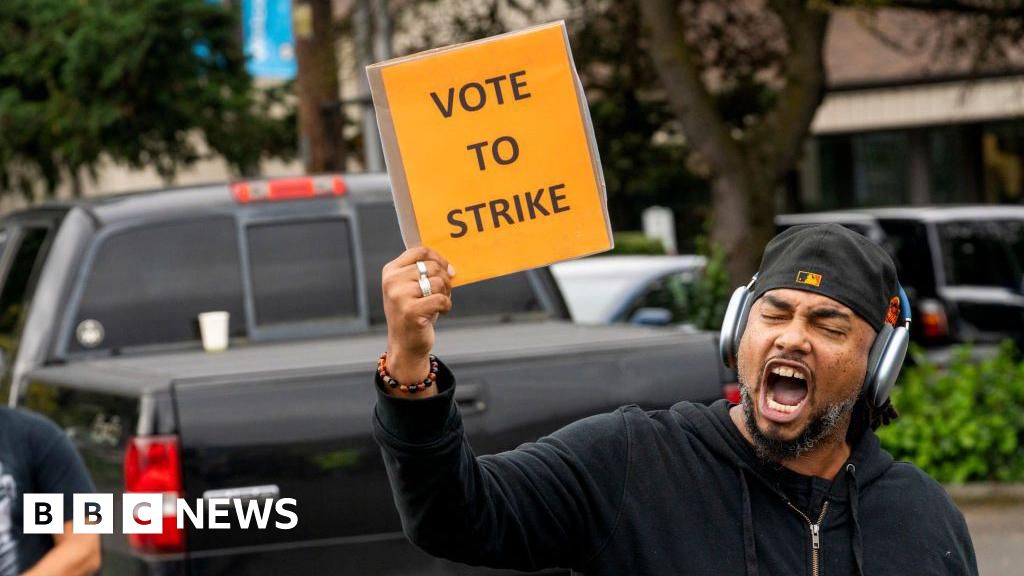Boeing boss Kelly Ortberg has warned the company is at a “crossroads” after losses at the aerospace giant surged to roughly $6bn (£4.6bn).
Mr Ortbeg, who took over as chief executive in August, said he was working “feverishly” to stabilise the firm, as it works to repair its reputation which has been hit by manufacturing and safety concerns.
The plane maker is also dealing with a strike by more than 30,000 of its workers in the US, which has dragged on for more than a month and halted production of several aircraft.
Its disappointing results come as workers are set to vote on Wednesday on the company’s latest pay and benefits proposal.
In prepared remarks, Mr Ortberg said he was “hopeful” that the plan, which includes a 35% pay raise over four years, would be approved, while noting that significant other hurdles remain to reset the business.
“This is a big ship that will take some time to turn, but when it does, it has the capacity to be great again,” he added.
The latest crisis at Boeing erupted in January when a dramatic mid-air blowout of a piece of one of its passenger planes.
Its space business also suffered a back eye after its Starliner vessel was forced to return to Earth without carrying astronauts.
The strike has compounded the problems, leading to a dramatic slowdown in production.
Mr Ortberg said the firm was “saddled with too much debt” and had disappointed customers with lapses in performance across the business.
Boeing’s commercial aircraft business reported operating losses of $4bn in the last three months, while its defence unit lost nearly $2.4bn.
“They clearly a have a lot to recover from, both operationally and financially,” said Ben Toscanos of S&P Ratings. “The first step will be to resolve the strike… so we’ll see how that plays out.”
Mr Ortberg argued the firm was in a strong position, with a backlog of roughly 5,400 orders for its planes.
But he warned investors that restarting the firm’s factories, whenever the strike does end, will be tricky.
“It’s much harder to turn this on than it is to turn it off. So it’s critical, absolutely critical, that we do this right,” he said.
“We have a detailed return-to-work plan in place and I’m really looking forward to getting everybody back and getting to work on that plan.”
The company announced plans earlier this month to cut roughly 10% of its workforce. Thousands of other staff are already on a rolling furlough due to the strike, which has also hit suppliers.
Mr Ortberg told investors that his first priority was a “fundamental culture change”.
“We need to prevent the festering of issues and work better together to identify, fix and understand root cause,” he said.

